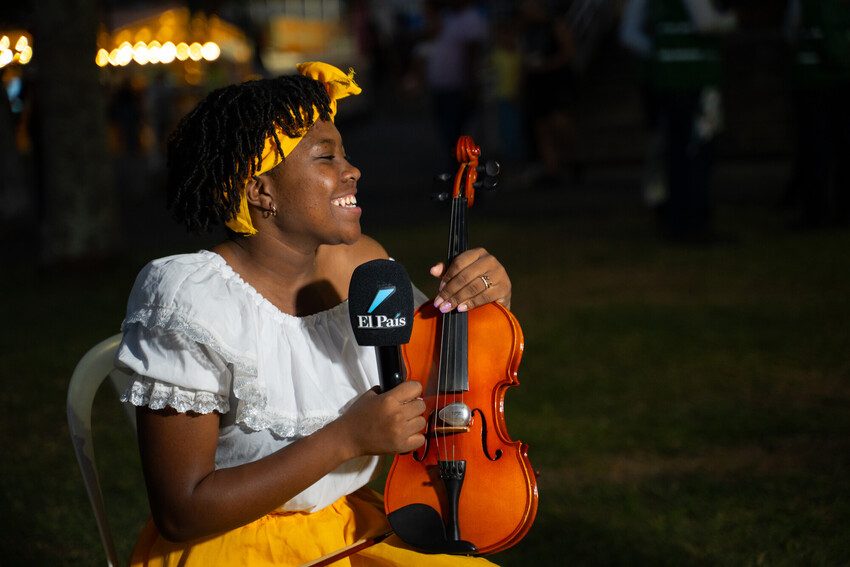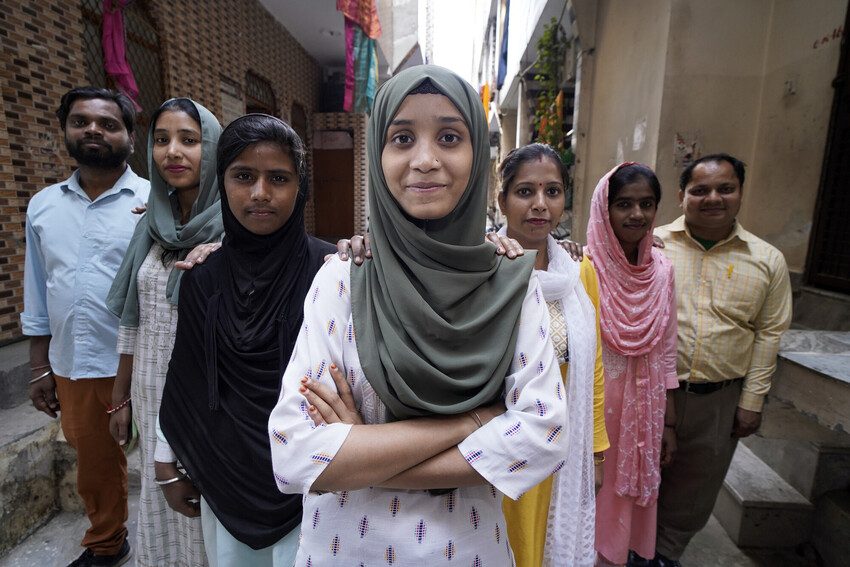Worldwide Annual Review 2025
A summary of our global impact for children, particularly girls, in 2025.
In this time of rollback of rights and funding cuts, they need allies and partners who are willing to step up and invest in their change initiatives. We remain committed to supporting young people to advance human rights, writes Anya Gass – Policy & Advocacy Lead at Plan International.
We are at a moment in history where we are seeing seismic shifts in the political landscape.
Anti-rights movements are making concerted and well-organised efforts to polarise the public and maintain patriarchal norms and power structures. They are infiltrating decision-making at every level, including at the global level, as Plan International has laid out in its recent report, “Strengthening Girl’s Rights as Human Rights”.
Development and humanitarian actors are facing a sharp decline in funding, crippling civil society organisations and prohibiting them from doing their critical and often life-saving work.
The recently published State of the World’s Civil Society 2025 by CIVICUS, the global civil society alliance, highlights that in this moment of crisis, a vibrant, active and free civil society is needed more than ever. They state that:
“It’s time to move on from survival strategies or any hope of going back to business as usual and instead reimagine civil society for an age of multiple, intersecting and accelerating crises. A more movement-oriented, community-driven, narrative-focused, resistance-ready, networked, principled and financially independent civil society can better withstand current threats and more effectively realise its collective mission of building a more just, equal, democratic and sustainable world.”

Young people continue to be at the forefront of initiatives to push for change in favour of human rights, social justice and sustainable development. But this also means that they are bearing the brunt of well-resourced and well-coordinated efforts to erode and reverse hard-won gains.
Young people are often at the forefront of feminist movements and climate activism, and restrictive laws and crackdowns on protests, particularly targeting youth-led gatherings and movements around LGBTQ+ rights, feminism, and other progressive causes, have a disproportionate impact on young activists. Governments are more likely to repress mass actions pre-emptively and violently when they involve or are led by youth.
Around the world, young activists are being abused, arrested, detained and deported, either explicitly for their activism or under other pretexts. Young people speaking out on human rights violations taking place in conflict settings especially find their protests shut down and their freedom of speech curbed.
Online harassment against activists is nothing new. While young people of all ages and genders experience backlash online, girls and young women, as well as LGBTQI+ young people are at particular risk.
Plan International’s 2023 State of the World’s Girls Report, Turning the World Around found that 61% of the girls and young women who participated in the study faced negative consequences due to their activism, and 27% were put off from activism by the negative views expressed by members of their community and their family and friends.
Threats against girl and young women activists are too often normalised or dismissed, hidden behind societal gender norms that already justify violence against women.
Girl and young women activists constantly tell us about their need for greater resourcing of the work they do. Only 1% of gender-focused international aid reaches women’s organisations. This 1% is not disaggregated by age but we can assume the proportion going to girl-led groups is far less.
In the current funding crisis for the development and humanitarian sector, this number is very likely to drop significantly. We need donors of all types – government, multilateral, and private donors – to prioritise flexible and multi-year funding for youth-led groups to allow them to continue the critical work they are doing in communities around the world.
Despite all of these challenges and threats young people face for their activism, they are skilled at finding innovative and alternative strategies to continue moving their agendas forward. Some may choose to organise informally, as a way to remain unconstrained or fly under the radar, especially in countries where they may be targeted by the government for their work.
Young people demonstrate their resilience online, developing strategies to protect themselves in the face of regular harassment and abuse, as a recent study from Plan International in partnership with CNN shows. Girl and young women activists also make use of creative methods such as “artivism” to communicate their messages in more subtle but highly effective ways.
In this time of rollback of rights and funding cuts, Plan International remains more committed than ever to supporting the work of young people to advance human rights and social justice.

Here are a few examples of that work:
Girls and young women need allies and partners who are willing to step up, step aside, and importantly, invest in their change initiatives. Governments, funders, and the private sector must provide multi-year, flexible, and accessible funding, along with non-financial support, to youth-led feminist organisations. Shifting power to local, girl- and youth-led organisations ensures better outcomes and value for money, fostering long-term impact and equity in communities.